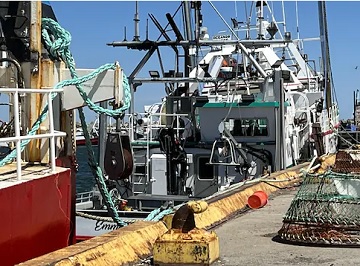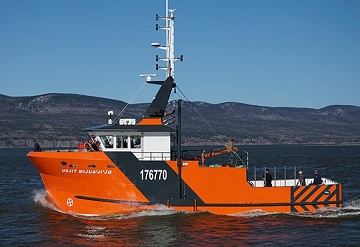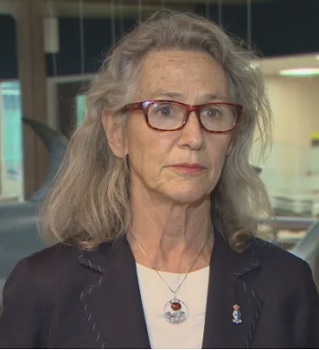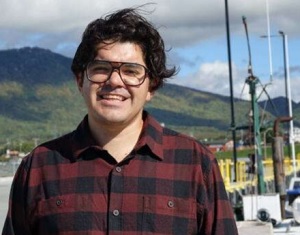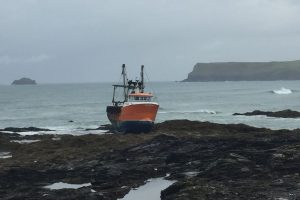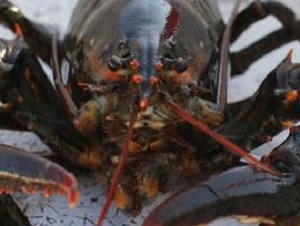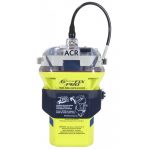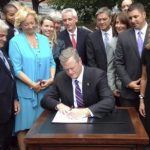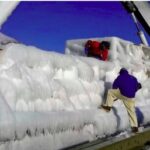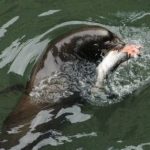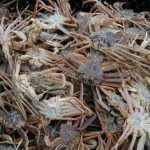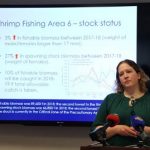Tag Archives: Quebec

Canadian Lobster Fishermen Move Towards Electronic Declarations
Electronic logbooks for fisheries are essential for timely processing and analysis of capture declarations and the sustainable management of Canadian fisheries. Since 2018 in Québec, fishermen using JOBEL have demonstrated that their fishing activity is compliant with national and international requirements. Also, Department of fisheries and Oceans, the fishermen and scientists now have the information needed to evaluate the durability of the Québec lobster fishery. Indeed, lobster fishermen in the Gaspe area greatly benefited from being able to provide the Marine Stewardship Council with accurate information on the impact on other species during the certification process for their spring fishery. >click to read< 11:29
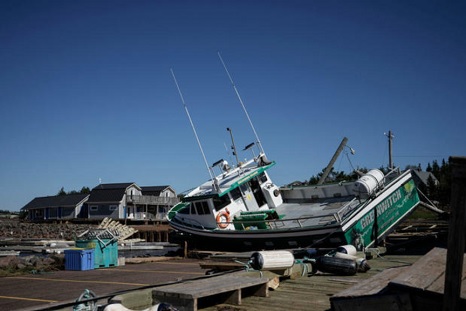
Body found as Canada struggles to restore power after storm – ‘Everything is unusable’
Hundreds of thousands of people in Atlantic Canada remained without power Sunday and officials said they found the body of a woman swept into the sea after former Hurricane Fiona washed away houses, stripped off roofs and blocked roads across the country’s Atlantic provinces. After surging north from the Caribbean, Fiona came ashore before dawn Saturday as a post-tropical cyclone, battering Nova Scotia, Prince Edward Island, Newfoundland and Quebec with hurricane-strength winds, rains and waves. >click to read<
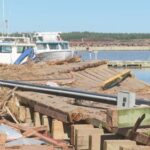 ‘Everything is unusable’: Fishers, farmers assess damage as Fiona wreaks havoc on industry – Officials have said areas exposed to storm surges have seen the most severe damage from the storm. In Morell, the Red Head Harbour wharf was almost completely totalled. Ken Drake was one of the fishers who spent Friday night there keeping an eye on their boats. He said all the boats have at least some damage. >click to read< 08:05
‘Everything is unusable’: Fishers, farmers assess damage as Fiona wreaks havoc on industry – Officials have said areas exposed to storm surges have seen the most severe damage from the storm. In Morell, the Red Head Harbour wharf was almost completely totalled. Ken Drake was one of the fishers who spent Friday night there keeping an eye on their boats. He said all the boats have at least some damage. >click to read< 08:05
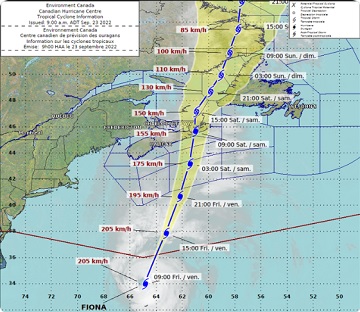
Canadian Hurricane Centre says Hurricane Fiona will be ‘historic, extreme event’
The Canadian Hurricane Centre says Hurricane Fiona will make landfall in eastern Nova Scotia as a powerful post-tropical storm early Saturday. In a Friday afternoon briefing, Bob Robichaud, a warning preparedness meteorologist with the centre, cautioned people not to focus on the hurricane’s track since its effects will be felt across a swath of eastern Canada. Environment Canada says this includes much of Nova Scotia, P.E.I., southeastern New Brunswick, western and southwestern Newfoundland, and some parts of Quebec bordering the Gulf of St. Lawrence. >click to read< – Current Hurricane Conditions – Environment Canada (weather.gc.ca) 13:54
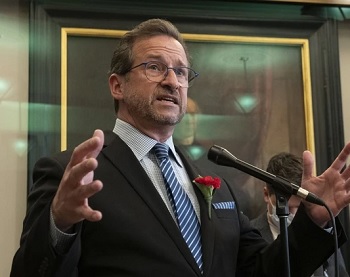
Bloc Québécois wants more squid fishing after feds cut herring quota
Bloc Québécois Leader Yves-François Blanchet asked Fisheries and Oceans Canada on Sunday to allow squid fishing to compensate for the decrease in quotas for the fall herring announced a few days earlier. On Friday, minister Joyce Murray announced that the total allowable catch for the fall herring in the Gulf of St. Lawrence would decrease to 10,000 tonnes from 12,000 tonnes to preserve the population. “We leave the fishers without notice in an economic situation that is not good for them, in a sector that is already fragile,” Blanchet said, explaining that adding squid quotas would offer them an alternative “that uses the equipment they already have and that has a domestic Quebec market that will consume all the products, while not risking biodiversity or costing the government anything. >click to read< 07:40

A seafood processor from the Îles-de-la-Madeleine in serious financial difficulty
With an estimated debt of between $3.5 million and $4 million to its lobster fishermen, the Madelinan seafood processing company LA Renaissance des Îles (LRDI) has decided to place itself under the protection of the Act respecting the ‘insolvency. This is what the president and CEO and sole shareholder, Lynn Albert, announced to the fishermen who supply her with lobster, during an information meeting held on Friday morning, learned the QMI Agency. LRDI is in default of payment for its dockside purchases from 66 fishermen for the last two weeks of the 2022 fishing season, totaling $3.7 million. Added to this are, among other things, deductions for government rebates and other operating expenses of fishing businesses. >click to read< 07:34
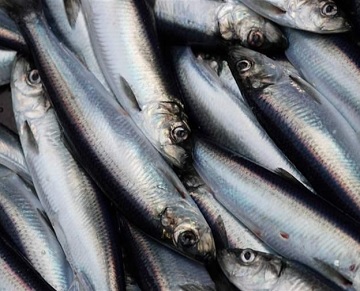
TAC goes from 12,000 to10,000 tonnes – Reduction to herring quota will impact Maritimes, Quebec
The quota for major parts of the herring fishery in the Maritimes and Quebec is being reduced in an effort to increase the stock. The total allowable catch for herring in the southern Gulf of St. Lawrence fishing zone, which includes parts of New Brunswick, Nova Scotia, Quebec and all of Prince Edward Island, is being cut from 12,000 tonnes to 10,000 tonnes. The fall herring stock in the area remains in the “cautious zone,” according to a statement released Friday by Fisheries and Oceans Canada. “The number of spawning adults is declining, and recruitment is at the lowest level ever observed,” DFO said. >click to read< 10:17
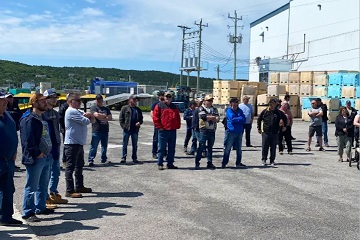
Profit over people: Royal Greenland isn’t here to help Newfoundlanders
Jarding’s assertion that Royal Greenland truly wants product landed and processed in Newfoundland and Labrador has proven to be categorically false. The company, a Crown corporation of the country of Greenland, flatly refused to buy shrimp from NL harvesters at a fair price earlier this summer, telling harvesters if they wanted to fish, they must bring their product all the way to Quebec if they wanted a buyer. Why could the Royal Greenland plants in Quebec pay double the price for the same product? Why did Royal Greenland refuse to pay the same to NL harvesters? These are the key questions Mr. Jarding has conveniently sidestepped. >click to read< 11:45
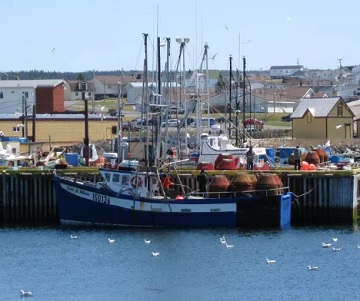
We’re not going anywhere — FFAW
According to Mr. Butler, fish harvesters in Newfoundland and Labrador are living like kings and queens while the poor processing companies struggle to balance the books. It’s a tale that’s been spun by Butler and his cronies with the Association of Seafood Producers since the onset of the COVID-19 pandemic. Ah yes, Derek Butler, champion of corporate profits, knows much about the rich shrimp harvesters of the Northern Peninsula (who, by the way, have no access to crab). They haven’t been able to sell their shrimp for enough to make ends meet, while the same companies buy the exact same product for over 50 per cent more at their facilities in Quebec. >click to read< 07:44
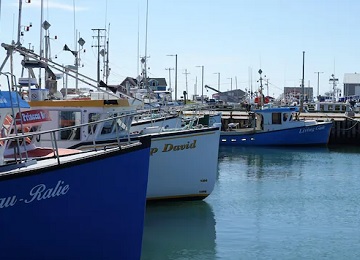
Madelinot elected officials concerned about the situation of LA Renaissance transformer
The mayor of the Magdalen Islands, Jonathan Lapierre, and the provincial deputy, Joël Arseneau, claim to have questioned the Quebec Minister of Agriculture, Fisheries and Food, André Lamontagne, about pay that the processor LA Renaissance would not have given to 67 lobster fishermen. business with the lobster fishermen amounts to a minimum of $3.7 million for their last two weeks of fishing. LA Renaissance has two processing plants in the archipelago, in Gros-Cap and Grande-Entrée. It processes and markets various products, including lobster, snow crab and scallops. >click to read< 17:33
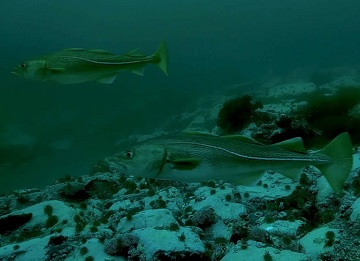
1-year commercial cod moratorium ordered for northern Gulf of St. Lawrence
Two days after the 30th anniversary of the 1992 cod moratorium that decimated the Newfoundland and Labrador economy, Ottawa has closed commercial cod fishing in the northern Gulf of St. Lawrence. On Monday, Fisheries and Oceans Minister Joyce Murray announced a one-year ban on directed commercial fishing in the northern Gulf of St. Lawrence in order to give young fish time to reach maturity. >click to read<
Rebuilding the Cod Fishery in Northern Gulf of St. Lawrence – “This is a tough decision; I recognize this commercial closure will pose economic challenges for many harvesters and comes at a hard time for people in Newfoundland and Labrador and Quebec. >click to read<
FFAW-Unifor Disappointed with Minister Decision to Close Gulf Cod – Fish, Food and Allied Workers Union is deeply disappointed with Minister Joyce Murray’s decision to close the cod fishery in the Gulf of St. Lawrence. The small cod fishery is economically and culturally significant to the region, and science has shown that natural mortality is the key unaddressed factor in the stock’s ability to grow. >click to read< 12:11
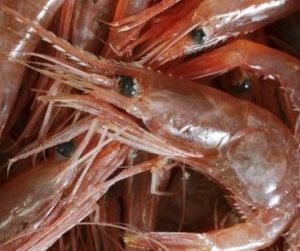
Northern Peninsula Shrimp Fleet Facing Crisis
The 4R shrimp fleet met in Hawke’s Bay today to discuss the assault on inshore owner-operators by the Association of Seafood (ASP) and their member companies, and the complete lack of support from provincial departments responsible. The 4R fleet on the northern peninsula are in a unique, troubling circumstance – they have no access to other species and the viability of their enterprise is dependent solely on shrimp. Without a price based on fair market values, harvesters will be unable to breakeven this year and many will face bankruptcy,” explains Keith Sullivan, FFAW-Unifor President. “Companies have attempted to manipulate the collective bargaining process with most fisheries this year. Working together like a cartel, they are attempting to erode solidarity by putting harvesters in a very desperate situation. >click to read< 09:57
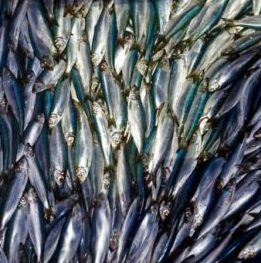
Herring and Mackerel fishing ban: Pelagic fishers from southern Gaspésie appeal for help to Ottawa
This decision had been taken, two days before the opening of the commercial herring fishery, by DFO in order to regenerate the stocks of the two species which would be in critical area
. Since then, pelagic fishermen have received no response from Ottawa, which is slow to decide on possible financial compensation. According to the president of the Association of Professional Pelagic Fishermen of Southern Gaspésie, Ghislain Collin, a dozen fishermen are currently in a very critical position. Captain Tom Langelier is one of those fishermen who lives only from herring and mackerel fishing. >click to read< 09:04
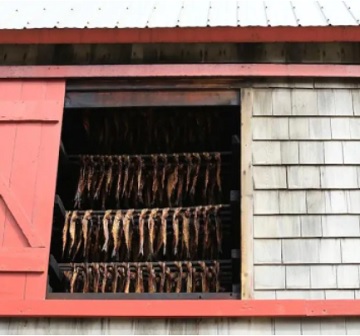
‘No smoke in the smokehouse’ on the Magdalen Islands after herring ban
The smell of smoked herring is a familiar scent along the shores of the island of Havre aux Maisons, part of the Magdalen Islands, where the Fumoir d’antan has been smoking the fish since 1942, but the tradition won’t be able to continue this summer. It’s the first time the company’s flagship smokehouse will be out of operation since the Department of Fisheries and Oceans (DFO) announced last month it would be suspending springtime herring and mackerel fisheries along the coastal waters of Quebec and Atlantic provinces until at least 2023. >click to read< 20:19
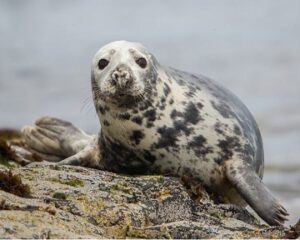
Why Canada shuttered some mackerel and spring herring fisheries in Québec and Atlantic Canada
The announcement by the Department of Fisheries and Oceans to suspend fishing for Atlantic mackerel and spring herring in the southern Gulf of St. Lawrence made waves as the fishing season opened. This decision will have repercussions on the fishing industry at several levels since these species are fished not only for commercial purposes, but are also used as bait in the lobster, snow crab and Atlantic halibut fisheries. The latest stock assessment of Atlantic mackerel and spring herring in the southern Gulf of St. Lawrence revealed high mortality rates among adult fish. In addition to high fishing pressure, the natural mortality of fish by predation also increased rapidly, The grey seal, now 16 times more abundant than in the 1960s, is the main predator of herring. >click to read< 18:38
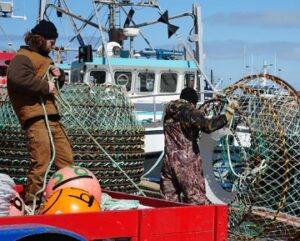
Quebec crabbers angry at DFO
Quebec crabbers who frequent the southern Gulf fishing areas, including large area 12, planned to leave during the weekend. Everyone was ready, on the Islands as in the Gaspé, assure with one voice the president of the Association of Gaspesian crabbers, Daniel Desbois, and Paul Boudreau, representative of the traditional crabbers of the Islands. The factories too, adds the director of the Quebec Association of the fishing industry, Jean-Paul Gagné. According to Paul Boudreau, Fisheries and Oceans informed them that the Coast Guard was not ready and that there was still ice in the gulf. The crabbers and processors of Quebec, who are campaigning for an early opening of the fishery in the spring to avoid interactions with the right whale, are outraged. >click to read< 09:17
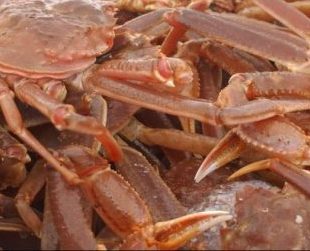
Political pressure for an early opening of the Gulf crab fishery
Quebec urges Ottawa to authorize the opening of the snow crab fishing season as soon as possible in the southern Gulf of St. Lawrence, in which crabbers from the Magdalen Islands, Gaspé and New Brunswick participate. In a letter sent on March 28 to his federal counterpart Joyce Murray, a copy of which was obtained by the QMI Agency, the Quebec minister responsible for fisheries, André Lamontagne, points out that the early opening of the snow crab fishery in the Gulf is, so far, “the most effective adaptation measure that reconciles the protection of Right whales and fishing activities”. >click to read< 10:17
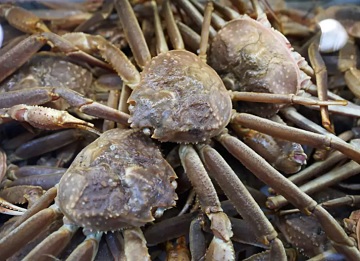
Snow crab prices skyrocket
The price of snow crab jumped last year. It explodes again this year. The price of the first arrivals of the season, which opened on Friday, exceeds $38 a pound for cooked crab in Montreal. Last year it was around $26. Enough for crab legs to stop being part of the springtime ritual for many Quebecers. At the Jean-Talon market, the price of live snow crab is $21.50 per pound. That of cooked crab is $38.50 per pound. This explosion can be explained by several factors: galloping inflation, which increases costs, particularly transport costs, the imposition of quotas on Alaskan crabs by the American government,,, There are practically no Alaskan crabs in the markets. The Russians, with what is happening in Ukraine, will not sell their crabs to the United States. >click to read< 08:35
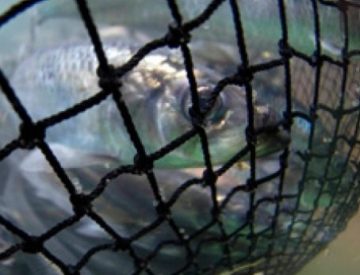
Ottawa announces closure of Atlantic mackerel, bait fisheries to restore stocks
Fishers on the East Coast are expressing their disappointment with Ottawa after DFO closed the Atlantic mackerel and commercial bait fisheries, citing concerns that dwindling stocks have entered a “critical zone.” The department said in a release Wednesday it was taking “urgent action” to help preserve the stock of southern Gulf spring herring and Atlantic mackerel with the closures in Atlantic Canada and Quebec. Fisheries Minister Joyce  Murray said she recognizes many harvesters depend on the fisheries, and she promised to work with them and others in the industry to preserve the stocks. Fishers in the sector, however, want the decision reversed. Martin Mallet, “It’s going to have a major impact — an atomic bomb impact — on our whole East Coast fishery, from Newfoundland to Quebec to southwest Nova Scotia,” >click to read< 18:52
Murray said she recognizes many harvesters depend on the fisheries, and she promised to work with them and others in the industry to preserve the stocks. Fishers in the sector, however, want the decision reversed. Martin Mallet, “It’s going to have a major impact — an atomic bomb impact — on our whole East Coast fishery, from Newfoundland to Quebec to southwest Nova Scotia,” >click to read< 18:52
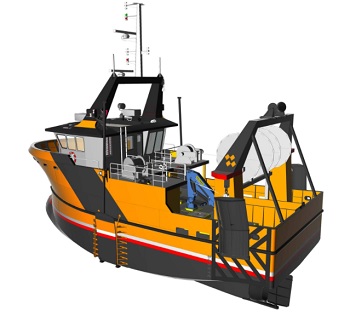
Fishing Boat Design: New Crab Boat/Groundfish Trawler from Gaspé Yard
The steel-hulled vessel will have a raised fo’c’sle design with an aluminum pilot house. When crab fishing, the clear, aft deck will be capable of carrying up to 150 collapsible, 100-pound crab pots. When rigged for trawling, a gantry will be mounted over the stern with two net drums. A pair to trawl winches can be mounted on a platform aft of the raised fo’c’sle. >click to read< 18:42
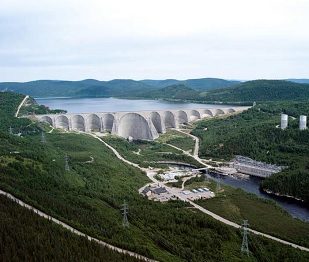
No Offshore Wind! Maine voters torn by Hydro-Québec plan as referendum set for Tuesday
In communities near the 233-kilometre route of the Appalachian-Maine interconnection line, the worksite raises both environmental fears and hopes for economic revitalization. The line passing through Maine to export 9.45 terawatt-hours annually to Massachusetts could bring billions of dollars to the Crown corporation. A rejection by voters would represent a second setback for Hydro-Québec after the initial plan to run electricity through New Hampshire in 2019 was abandoned due to public opposition. (Shame on non-green NH!) >click to read< 19:26
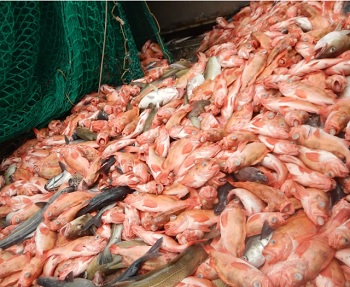
Quebec joins Nova Scotia in seeking historical share of redfish quota
Companies from Quebec hold a little under one-third of the offshore quota, while it’s around 50 per cent in Nova Scotia. The fishery was effectively shut down to protect the species in 1995. However, a now booming population is about to set off a huge harvest in an area known as Unit 1, which encompasses the Gulf of St. Lawrence and portions of the Cabot Strait. Quebec said it’s essential for the federal government to maintain the historical share of quota when large-scale fishing resumes in several years, even if the industry there is not ready. >click to read< 09:14

The NLGIDC Supports the Position of an Inshore Fisheries Coalition on the New Redfish Fishery
The Newfoundland and Labrador Groundfish Industry Development Council (NLGIDC) clearly supports the position of a coalition of inshore harvester associations, Indigenous nations, and those involved in seafood processing in Newfoundland & Labrador, Quebec and New Brunswick. This coalition issued a News Release on this important issue on October 14, 2021 that called on the Department of Fisheries and Oceans (DFO) to immediately suspend its consultation process on the rapidly growing redfish resource in the Gulf of St. Lawrence. >click to read< 09:57
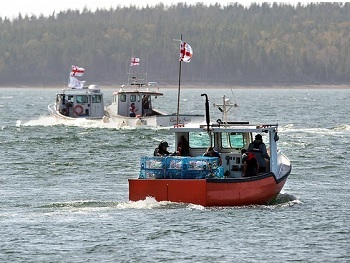
Minister Jordan issues statement on cooperative path forward with Potlotek First Nation moderate livelihood fishery
“I am pleased to announce today that we have reached an understanding that will see Potlotek First Nation fishing for a moderate livelihood and selling their catch starting Saturday, June 5, 2021.” As an interim measure, we will be recognizing those harvesters designated under Potlotek’s plan to be authorized to fish 700 jakej (lobster) traps without adding additional access and during the established season underway in Lobster Fishing Areas 27, 28, 29, 30 and 31a – which is within the Unama’ki region and aligns with Potlotek’s identified traditional district. The Unama’ki region is one of the seven Mi’kmaq districts in Atlantic Canada and Quebec, and spans Cape Breton Island. >click to read< 14:19
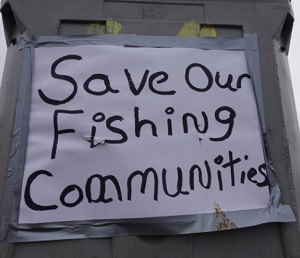
Prospect-area mackerel fishermen haul after DFO sets season quota
“Mackerel is a big part of our living around this coast and always has been,” Darrell Countway said, a fisherman and member of the Prospect Area Full-Time Fishermen’s Association. Countway is one of the dozens of fishermen who were ready to set up a roadblock if the Department of Fisheries and Oceans (DFO) further delayed their season. “It would have been three, four months’ worth of work for no pay,”,,, DFO eventually set the quota at a 50 per cent reduction from last season at a 4,000-tonne total allowable catch for the fisheries in Atlantic Canada and Quebec. Video, >click to read< 07:20
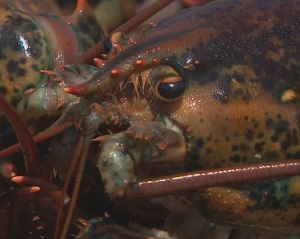
Members of Parliament issue conflicting reports on contentious Moderate Livelihood fishery in Quebec in the Maritimes
Parliamentarians issued dissenting reports Thursday on implementing First Nations moderate livelihood fisheries,,, Although all parties supported the right to a moderate livelihood fishery, the committee was not unanimous. Both the Conservatives and Bloc Quebecois issued dissenting reports. The Conservatives consider moderate livelihood fishing a commercial enterprise and subject to the same regulations, including seasons, as all commercial fisheries, with enforcement and regulation unambiguously under the Department of Fisheries and Oceans. The Bloc called for co-management. The office of federal Fisheries Minister Bernadette Jordan issued a statement Thursday that said it had received the report that morning and “look forward to reviewing its recommendations closely.” >click to read< 16:09
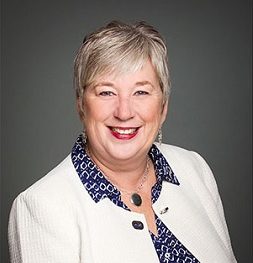
Here’s how to get a piece of $62.5 million in fish processors’ Coronavirus aid
It’s been two months since the federal government rolled out a $62.5-million aid package to support seafood processors affected by Coronavirus, and a $469 million program to aid fish harvesters. So far no one has seen a cent of funding from either package. Today, June 16, seafood processing companies are a little closer. Bernadette Jordan, Minister of Fisheries and Oceans Canada, announced details of how the $62.5 million from the Canadian Seafood Stabilization Fund (CSSF) will be divvied up across Canada, and how to apply. Of the $62.5 million, Atlantic Canada gets the lions’ share — $38.1 million. Seafood processors in Quebec and Western Canada will also get a share of CSSF. >click to read< 14:48






